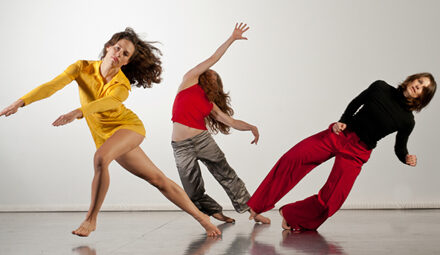On June 19, the Horace Williams House was the charming setting for an evening of music by Philadelphia composers – or composers whose music was published there – from the turn of the 19th century, radiantly realized by tenor Thomas Gregg, who was in exceptional voice, and harpist Emily Laurance, who was virtually speechless, but whose fingers worked magic throughout the program. The artists perform as DoubleAction, but on this occasion the harp was a rebuilt single-action instrument that might have been found in the parlor of a well-to-do citizen of what was, at the time, the center of art and culture in North America.
The program was titled “Philadelphia Harpists and Lovers,” and the bill of fare included both theatrical and domestic works by several composers whose names are known, peripherally – Benjamin Carr (whose music figured in New World’s bicentennial series of American music), Giovanni (or Johannes) Simone (or Simon) Mayr, and Leopold Kozeluch – and a flock of capable but decidedly lesser lights – John Clarke-Whitfield, John Parry, Charles Philippe Lafont, Leopold Meignen, William Horsley, George Kiallmark, John Stevenson, Michele Carafa, R.A, Smith, Thomas Cooke, and a few others. The words were by poets whose names are better known, including Walter Scott, Thomas Moore, Lord Byron, and such. The themes were harps and minstrels and love in various forms, all above board and appropriate for proper Philadelphians to render in polite society.
The room was full, and the singing and playing were remarkable. The tenor’s diction ranks with the best singers, anywhere, and the harpist has a passion for her work that is infectious. That said, the introduction to this review might well inspire those who were not present to heave a sigh or two, not of love but of relief. Those souls would be mistaken, for within the confines of the program – which the artists were to take to Philadelphia, where it was to be rendered in period costumes! – there was amazing variety. Some of the numbers were in French, the language of love and diplomacy, back then, and there was a charming if fairly typical Italian aria that dealt with the pain of love. The titles give away much: they included exercises in sentimentality such as “The Fatal Shafts” (Sappho), “The Voice of Her I Love,” “To home’s deal scenes I bid adieu,” “I was a wild and wayward boy” (Scott), “Rosebud of Summer,” and Nobody Coming to Marry Me.” A single harp solo- Kozeluch’s Variations on “Dorian Gray” – further enlivened the proceedings.
Although there were no bios of the artists, erudite notes further set the scene(s), and overall the evening cast new light on a little-known aspect of American culture. We’ve come a long way since 1835, the date the last piece given was published. Some would say the “progress” has not been altogether positive. We remain in DoubleAction’s debt for their informative and revealing concerts and for the outstanding artistry they continue to bring, from time to time, to the Triangle.











